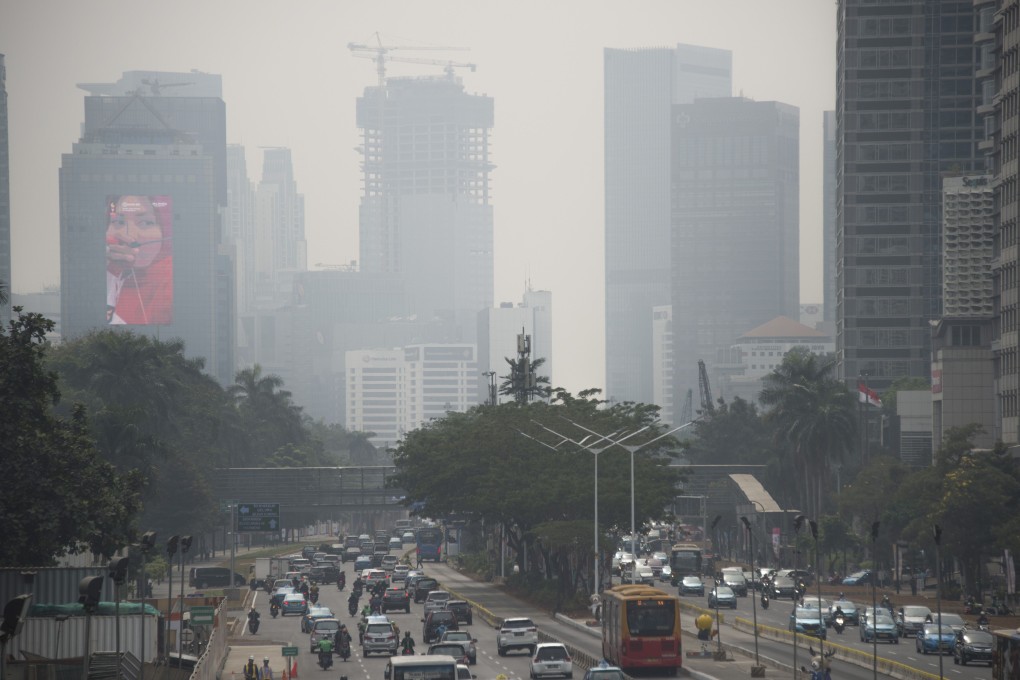Jakarta’s air quality is terrible – and Indonesia’s President Widodo is among those to blame
- The president is among the seven officials who have been found guilty of environmental negligence over air pollution in the capital
- According to a court ruling, Widodo is now required to take serious action, including setting adequate national ambient air quality standards

The standard for annual ambient air quality is 10 micrograms of fine particles per cubic metre of air, according to the World Health Organization, while Indonesia’s national standard is 15 micrograms.
Judge Saifuddin Zahri also granted the plaintiff’s demand that serious action be taken by the president and the other defendants – the environment and forestry, interior, and health ministers, as well as the governors of Jakarta, West Java, and Banten.
They will now have to create a number of strict regulations on air quality, particularly Jakarta governor Anies Baswedan, who was told to sanction individuals or businesses that do not meet the emissions quality standard; monitor the implementation of the ban against outdoor burning of rubbish; and conduct periodic emissions tests on old vehicles.